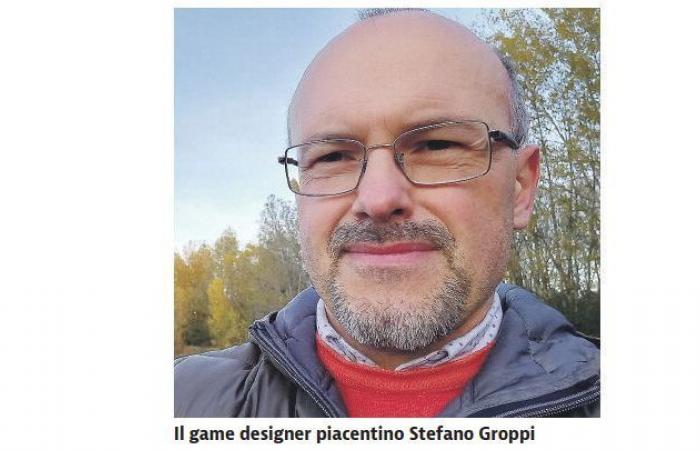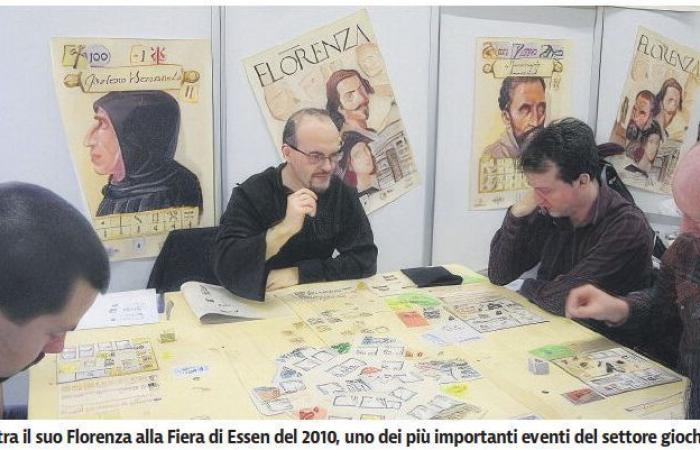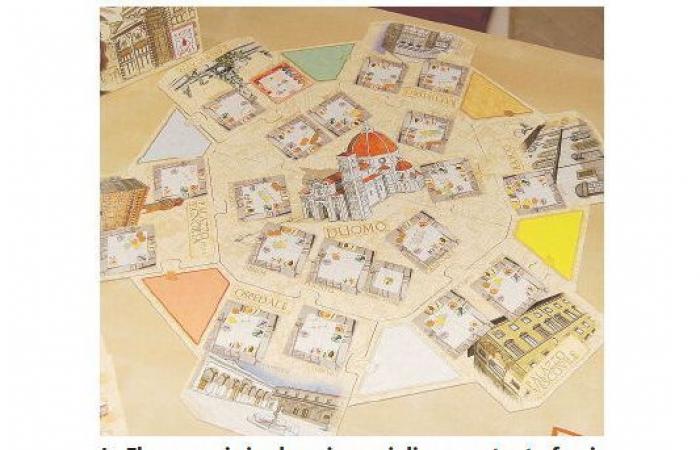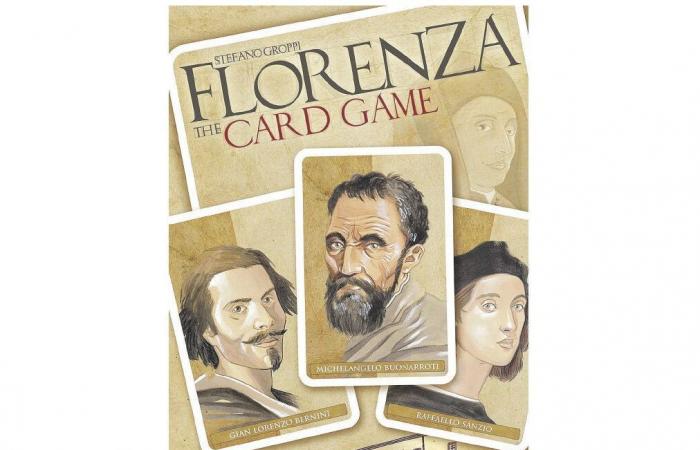The passion for board games involves a frequent side effect: the desire to create your own original game. The Piacenza native Stefano Groppi knows this well and combines his work as a religion teacher at the Romagnosi Professionale (formerly Casali) in Piacenza with that of a game designer and publisher.
Passionate about wargames and board games for over 30 years, in 2007 Stefano founded the Orizzonte degli Eventi gaming association together with other partners, one of the main points of reference in Piacenza for lovers of this hobby.
And it was there that he began to experiment by creating personalized rules for already existing titles (the so-called home rules) until he felt ready to create something of his own. This desire to follow one’s dreams triggered a chain reaction that led to something big: the birth of the Placentia Games publishing house.
Intrigued by this entrepreneurial parable, we decided to meet Stefano to tell us about his fascinating adventure.
«It all started when I tried to invent games from scratch. The first two prototypes were decidedly unsuccessful. The third, however, proposed to my friends, they really liked. Two of them, Sandro Zurla and Franco Arcelloni, therefore proposed that I try to publish it together with them, as a bet. So we founded Placentia Games, whose aim was, mainly, to let our passion take a new path through the publication of a game that would later become Florenza.”
Was it difficult to enter the world of board games without having experience?
« Indeed, yes, we were inexperienced with the editorial dynamics of a board game and so we asked Post Scriptum for help as consultants. After two years of gestation we were finally able to present our game in 2010 at one of the most important events in the sector: the Essen Fair. The reception was greater than our expectations and we ran out of 120 copies available well before the end of the event!
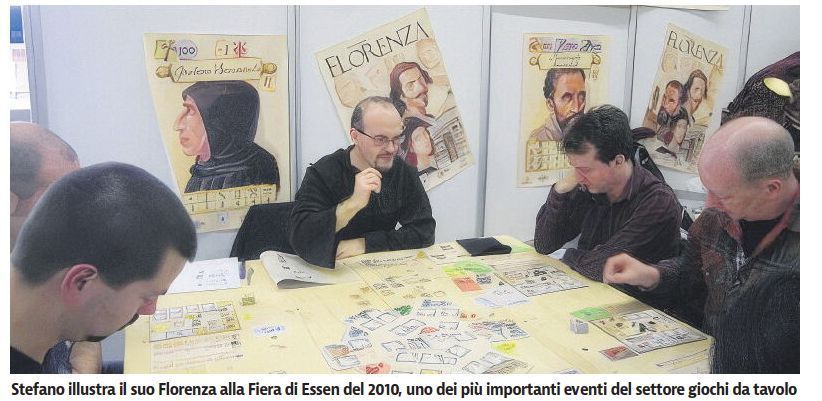
What was the creative driving force that led to the creation of Florenza? Did you start from the theme or did you create the game mechanics first and then choose the setting?
«I started from the theme: Renaissance Florence has an absolute charm. I then asked myself how to make families compete in the creation of works of art that would bring prestige to the city and the house, so the idea was born of a game with seven resources, three types of artists, a common board and a personal one for each player, with the influence of religion and a touch of randomness in the creation of the artwork. After all, when you hire an artist you don’t know if he will make a masterpiece or a mediocre work…”.
What consequences did the game’s success have on the Placentia Games project?
«Given the good success of the first game, we decided to continue with the experience. Ark & Noah followed and then also the card game version of Florenza. The next game, Bretagne, was the first by another author. In the meantime, the reality we had created had grown too much to remain just a hobby and too little to become a job even for just one of us, so we decided, also due to personal commitments, to close the company and give use of the brand to those who had been our consultants. Therefore, you can still find other Placentia Games branded games today.”
Has your academic background influenced your approach to creating your games?
« I have a degree in economics and commerce, as well as a bachelor’s degree in theology, and this entered into the preparation of the prototypes especially for the use of statistics to make the game more balanced. Usually, I start from an idea, which can be a setting and or a mechanic and, if at the first playtest it is not a complete failure, the rest is a long process of refinement in which statistics and probability can play an important role”.
Is there a particularly important game in your life as a board game enthusiast?
« My first great love was Axis & Allies, thirty years ago. My absolute favorite is Here I stand, but I could mention others such as Imperial, Advanced Civilization, Age of Reinassance or Kingdomino.”
Being a teacher, what do you think of board games as an educational tool?
« Absolutely suitable for all ages: it is better suited for some subjects or topics, but it is certainly an element to be used. I remember that in my first economics lesson, at a professional course, I used the Mercante in Fiera to suggest the price formation system based on the principle of supply and demand”.
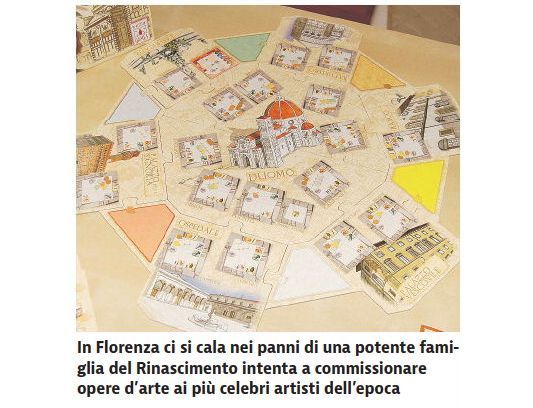
Do you think board games can still attract younger gaming audiences?
«I believe that video games, even multiplayer ones, lack that aspect of conviviality and “physical presence” that board games can guarantee. The beauty of seeing the expressions of other players, the physicality, the direct relationship not mediated by a screen or headphones, the skill of handling the game components have a charm that can still capture young people.”

Is there a project or theme that you would really like to bring to the tables of players all over the world?
“There are many! I am working, with very little time available, on three prototypes. The themes are the Maritime Republics and a late nineteenth-century art museum, but the most original is an abstract dressed as the composition of a flowerbed with flowers of different heights and colours.”
To conclude, do you have any advice to all people from Piacenza who would like to approach the world of board games?
« I like to say that “play is a serious thing”, that is, it is not an activity suitable only for children: it is suitable for all ages and can relax and entertain. As GB Shaw is said to have said: “You don’t stop playing because you get old, but you get old because you stop playing.” So, my advice is to try playing board games, perhaps at the Orizzonte degli Eventi headquarters on Stradone Farnese 26.”
by Carlo Chericoni

